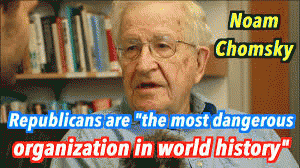Readings for Second Sunday of Advent: IS 11: 1-10; PS 72: 1-2, 7-8, 12-13; ROM 15: 4-9; MT 3: 1-12
"The meaning of the Incarnation is this: In Jesus Christ, God hits the streets. And preparing for that is the meaning of Advent." (Jim Wallis. "Advent in 2016: Not Normal, Not Now, Not to Come.")
__________
A few days ago I published a review of James Patterson's novel, Woman of God. It's the story of Brigid Fitzgerald, a medical doctor who though female, becomes a priest and candidate for the papacy.
Brigid and her husband (also a dissident priest) decide to form their own Catholic parish. They do so because of the studied irrelevance of the Catholic Church to pressing problems of the real world. The two call their congregation the "Jesus, Mary and Joseph (JMJ) Church." They insist on remaining Catholics not allowing their opponents to drum them out of the church as just another break-away Protestant sect.
The JMJ Church spreads rapidly, largely because it connects Jesus' Gospel with issues of peace and social justice. And though vilified by her local bishop and physically threatened by right wing Catholics, Brigid eventually becomes widely celebrated and is summoned to Rome not for condemnation, but papal approval.
I couldn't help thinking of Woman of God as I read today's liturgy of the word this Second Sunday of Advent. Like the JMJ Church, the first two readings along with the responsorial psalm emphasize the connection between faith and social justice.
Then in today's Gospel, the prophet, John the Baptist, like Brigid Fitzgerald, initiates an alternative community of faith far from the temple in the desert wilderness. John's credibility leads "all Jerusalem and Judea" to see him as a prophet. In fact, (as John Dominic Crossan has pointed out) John becomes for the Jewish grassroots their de facto alternative "High Priest."
To see what I mean, consider that first selection from the prophet Isaiah. It directly links faith with justice for the poor, oppressed and marginalized. In Isaiah's day (like our own) they were typically ignored. By way of contrast, Isaiah's concept of justice consists precisely in judging the poor and oppressed fairly and not according to anti-poor prejudice -- in Isaiah's words, not by "appearance or hearsay." (A clearer statement against contemporary police and/or government profiling can hardly be imagined.)
Not only that, but according to the prophet, treating the poor justly is the key to peace between humans and with nature. Centralizing their needs rather than those of the rich produces a utopian wonderland where all of us live in complete harmony with nature and with other human beings. In Isaiah's poetic reality, lions, lambs, and calves play together. Leopards and goats, cows and bears, little babies and deadly snakes experience no threat from each other. (This is the prophetic vision of the relationship between humans and nature -- not exploitation and destruction, but harmony and mutual respect.)
Most surprising of all, even believers (Jews) and non-believers (gentiles) are at peace. Today's excerpt from Paul's Letter to the Romans seconds this point. He tells his correspondents to "welcome one another" -- including gentiles -- i.e. those the Jewish community normally considered enemies. (That would be like telling us today to welcome Muslims as brothers and sisters whom God loves as much as any of us.)
Today's responsorial psalm reinforces the idea of peace flowing from justice meted out to the "least." As Psalm 72 was sung, we all responded, "Justice shall flourish in his time, and fullness of peace forever." And again, the justice in question has the poor as its object. The psalmist praises a God and a government (king) who "rescue the poor and afflicted when they cry out" -- who "save the lives of the poor."
In his own time, the lack of the justice celebrated in today's first three readings infuriates Jesus' cousin, John the Baptist. His disgust forces him out of the temple and into the desert. It has him excoriating the religious leaders of his day as a "brood of vipers."
Unmistakably clothed as a prophet -- in garments that absolutely repudiate the "sacred garb" of his effete opponents -- John lambasts the Scribal Establishment which had normalized relationships with the brutal occupation forces of Rome. As opposition high priest, John promises a religious renewal that will lead to a new Exodus -- this time from the power of Rome and its religious collaborators.
I hope you can see as I do the parallels between the context of John's preaching and our own. We live in a culture where those in charge contravene our faith by openly slandering the poor and marginalized celebrated in today's readings as especially dear to God. I mean since November 8th, all the levers of power (the presidency, the Supreme Court, the House and Senate) find themselves in the hands of billionaires and their friends -- the 1% that the Occupy Movement identified so accurately five years ago. Ironically that richest 1% has succeeded in scapegoating the country's poorest 1% (immigrants) as a major cause of our country's problems. Moreover, they equally vilify other poor and marginalized people: the impoverished in general, brown and black-skinned people, women, the LGBTQ community, environmentalists, protestors and anyone who exposes the crimes of the billionaire class.
(Note: You can view every article as one long page if you sign up as an Advocate Member, or higher).






